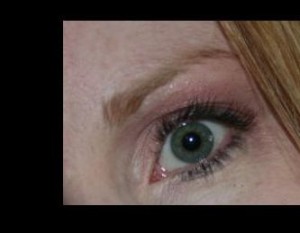 This is Part 2 of a series (inspired by the article “Why 80s Babies Are Different Than Other Millennials”) in which I argue that 80s babies are actually the magic Rosetta Stone of figuring out a healthy balance between using technology and unplugging. Due to our weird place on the timeline of technological development, we have a perspective the world needs.
This is Part 2 of a series (inspired by the article “Why 80s Babies Are Different Than Other Millennials”) in which I argue that 80s babies are actually the magic Rosetta Stone of figuring out a healthy balance between using technology and unplugging. Due to our weird place on the timeline of technological development, we have a perspective the world needs.
In Part 1, we established that 80’s babies understand the internet should be an event, not a lifestyle—even if we have trouble living that belief out sometimes.
80s Babies Lesson 2: Technology May Need Boundaries, But It’s Pretty Wonderful.
When you focus on how technology has overtaken our lives, it’s easy to become an old cane-waver on a porch, repeating the phrase “good old days” and seeing only the bad side of technological advances. Most of us born in the 80s don’t fall into this trap, because the techno revolution happened when we were still young and impressionable and not set in our ways.
If you can distinctly recall the excitement of walking into your weekly computer lab session and seeing a room full of Apple 2Es displaying the start screen of Oregon Trail, you’re a member of this nameless generation, my friend.
As Garvey’s article points out, our generation had computer class as a regular part of public school, and it laid an important foundation: from an early age, we understood that technology was the way of the future. It was so important that they had to teach us about it alongside Algebra and reading. We were taught it would be part of our future jobs (although the ‘80s Apple dinosaurs our school district could afford in 1997 did not, shockingly, use the same OS as computers at my current job).
Our brains, as the article says, were “curious sponges.” We were open to technology. By and large, we had little emotional struggle about integrating more and more technology into our daily lives.
We’ve seen technology provide breakthroughs in the medical field that help suffering patients. We’ve experienced the convenience of making complicated connections through cell phones, the relief of hearing a loved one’s voice on the phone when they were supposed to be home two hours ago. We’ve broken barriers of isolation by using the internet to find people who share our interests and struggles. We’ve realized that we can keep records and write notes and craft letters without killing so many trees. We’ve gotten access to medical journals from other countries, kept in touch with old friends halfway around the world, seen corrupt power exposed through the strength of social media.
I actually think this makes us appreciate technology more than the generation that was born into it.
After all, as Garvey says, we were “the first children to grow up figuring it out, as opposed to having an innate understanding of new technology the way Millennials did.” We’ve seen its transformative power, whereas today’s kiddos can’t imagine life before that transformation.
We know technology can be used for wonderful things—even though we admit that it can be too all-consuming.
And, like it or not, we accepted a long time ago that technological change isn’t going away. We were the first generation that was old enough to question the negatives of technology but weren’t able to just put our heads in the sand about it. People from older generations can, if they so choose, learn just enough tech to survive and coast. Our generation has spent, and will spend, the entirety of our working lives in a world that demands we be neck-deep in technology to stay relevant. By the time we’re our parents’ age, tech will be too ingrained and changing too fast to not constantly learn about it. That’s a tall order, but we have risen to the occasion.
So just because we 80s kids recognize that technology can quickly overtake you, and that it is a powerful force to use with sober judgment, we don’t see technology as bad. We see it as a tool—a tool we knew from a young age would do wonderful things, if used well.
Tune in next week (or use the Subscribe button above) for 80s Babies Lesson 3: The Value of Direct Human Connection.
(Missed Part 1? Catch it here!)